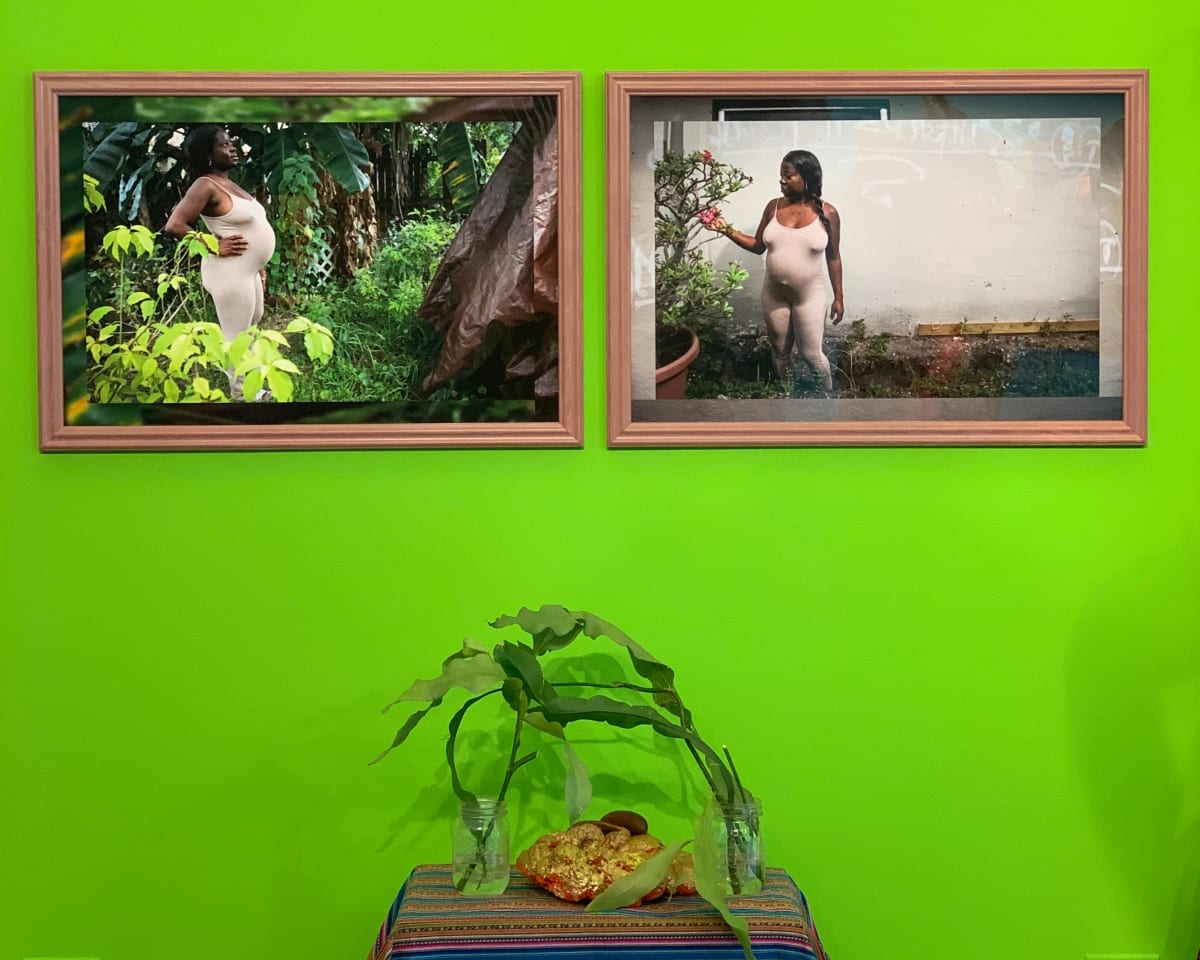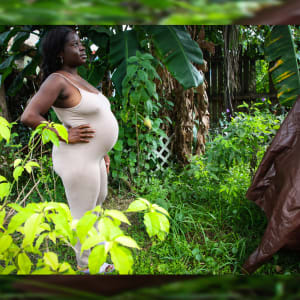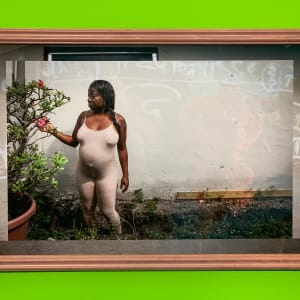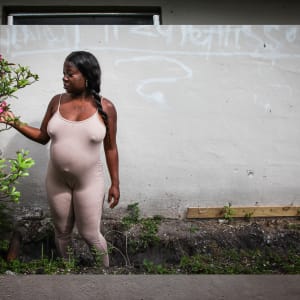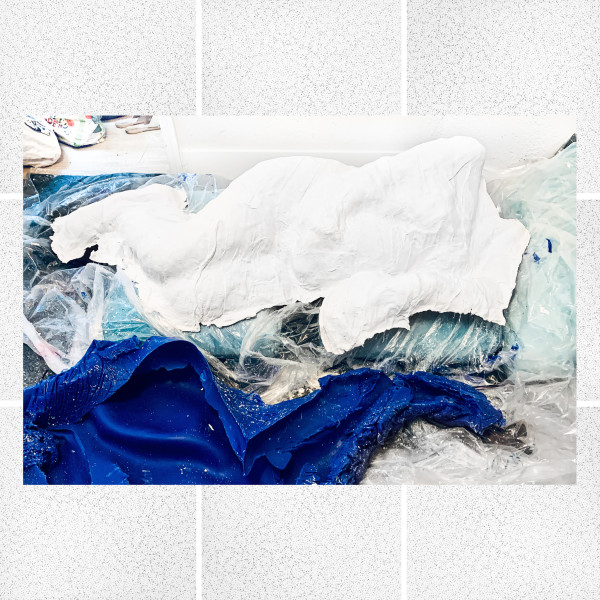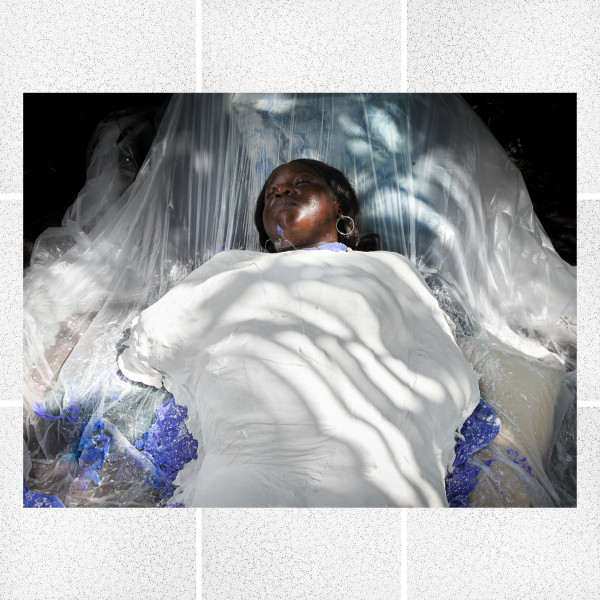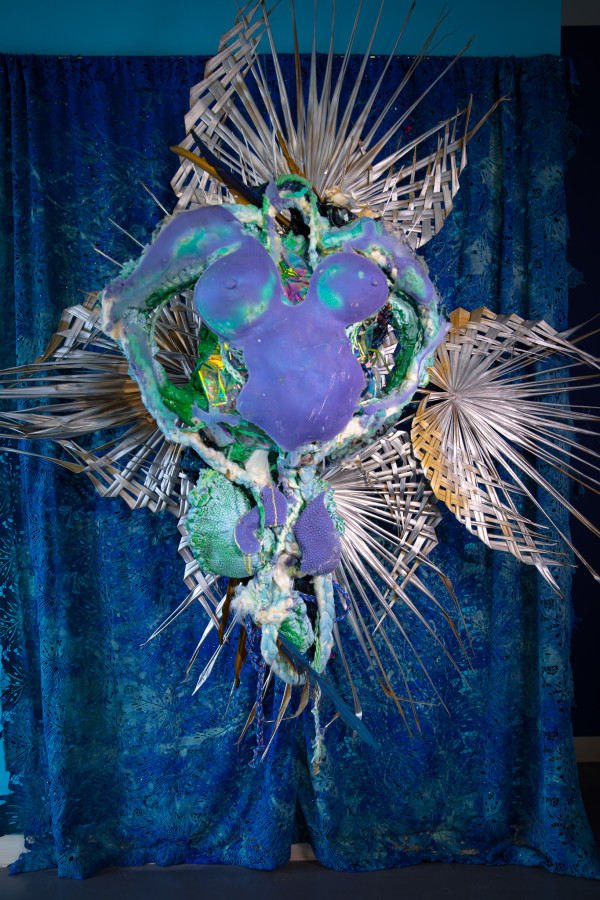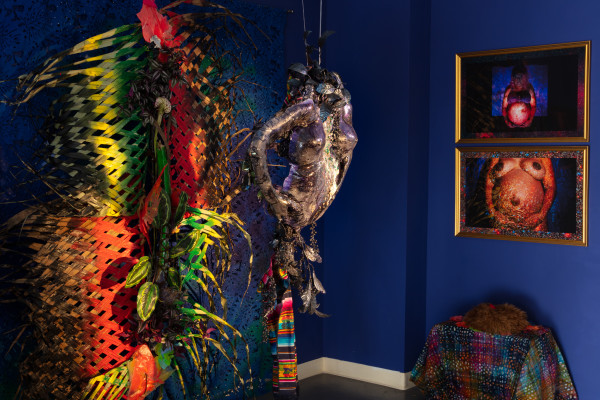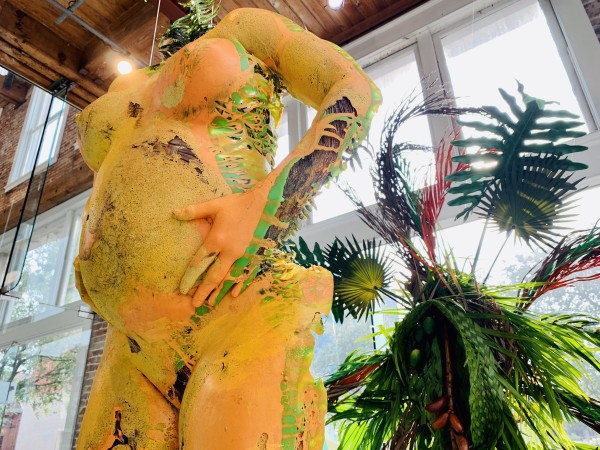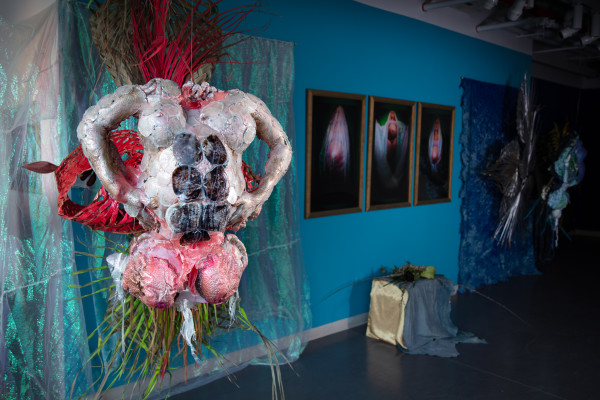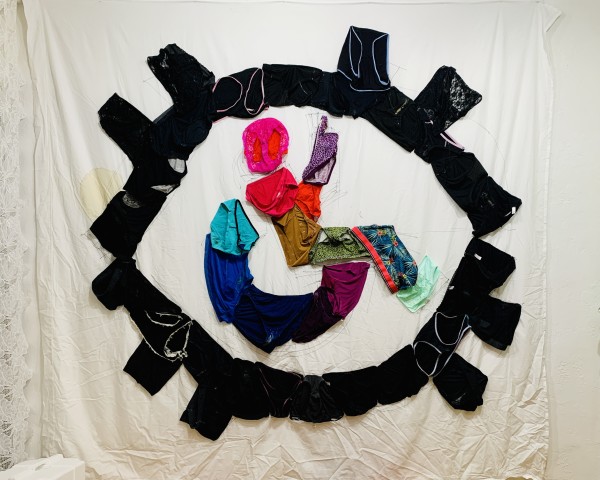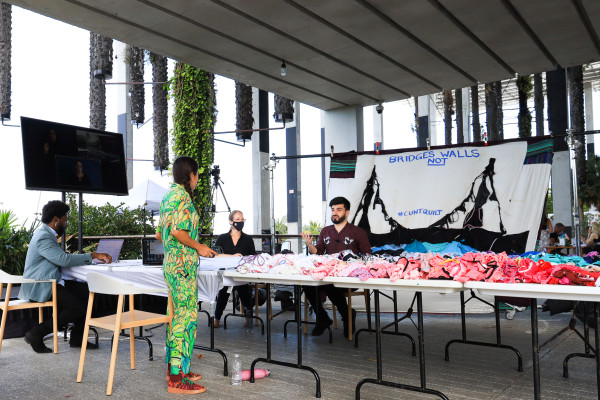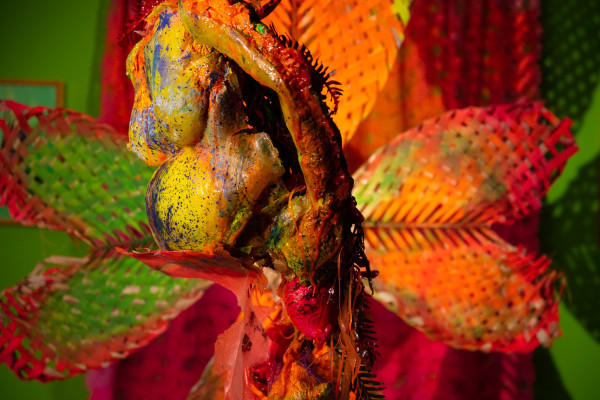Phara’s mother named her after Pharaohs. A pregnant Haitian-American mother prepares for her birth to baby Jarell in the momentary respite of her mother’s tropical botanica backyard in Miramar, FL where hospital delivery death rates for black and brown people are the highest nationwide. Phara's mother shares her labor stories with her daughter, including the births of her 11 children in Miami, after moving here with her grandmother from La Gonave, Haiti. Phara’s mother also shares the oral tradition of her grandmother’s delivery who delivered in a small fishing village where doulas and birth workers visited laborers at home.
Phara’s pose is a combination of the mummy chest cross and bracing her fetus; recalling images ranging from American pop culture (Wakanda forever!), Egyptian death rituals and Haitian Mambo. Haitian Mambos celebrate La Cuarentena pre and post partum healing ceremonies similar to Colombian birth practices. The “three baths” postpartum shared across cultures include boiling "hierbas hervidos" to prepare herb water for hot baths . A new mother is encouraged to drink tea brewed from these same aromatic leaves, which include papaya, sour orange, sour soup (corossol), mint (ti baume), anise, bugleweed, and eucalyptus. The herbs relax and tranquilize the mother, causing her muscles to tighten and loosen bones altered during pregnancy, labor and delivery.
The Linea Negra series photographs (2008-present) documents the inception of gender, power and race structures from slogans, slang, maxims and "old wives tales" to internalized, institutional violence. The works celebrate the melanin line appearing during gestation (most prominent in women of color) as a biological pieta; the first biographical mark on the procreative body and the first sign of our creative humanity.
- Subject Matter: Pregnant Figure
- Collections: Linea Negra photographs

